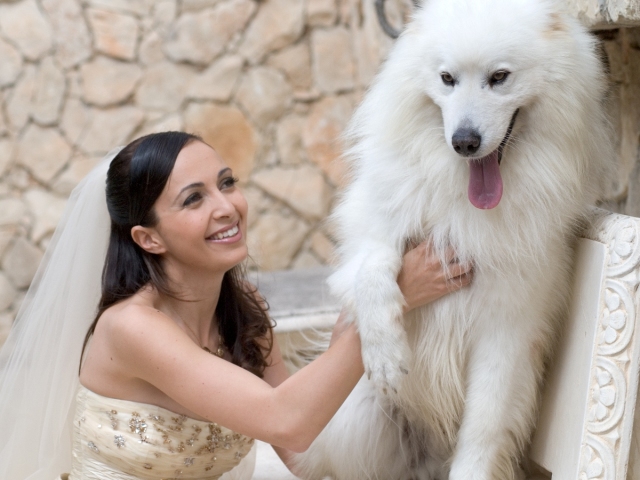QuestionAbout 2 years ago my husband adopted a terrier mix (unknown age, but probably 5+ yrs) from a private party. Scruffy shows no signs of aggression and rarely barks. He is smart and easy to train. Unfortunately, he also shows intermittent signs of affection, terror, playfulness, panic, interest, and lethargy. And while he generally likes my husband, he really hasn't bonded to him.
Perhaps the most distressing part is that occasionally (maybe once or twice a month) he has 'spells' where he acts like he doesn't recognize us or our house and is terrified that we are going to beat him (cowers in his kennel and shakes if we even look at him). The spells can last 1 hour to 3 days and then he's back to some level of comfort with us -- it still takes another day or two for him to return to playing, for example. I've tried to track when he's had his spells and can see no patterns. We suspect that he was abused and have had him to 2 vets for neurological checks with nothing found. (My diagnosis is some type of physical brain trauma which results in seizures.)
Do you have any suggestions as to what he can do to help Scruffy? It just breaks our hearts when he has these spells and acts like we are about ready to kill him.
Thanks, Linda and Tom
AnswerDogs can have seizures. There are several causes from medical disorders to neurological issues. I would not offer any advice at this point. Your vet is the best source of information. You could also contact the major vet schools such as Purdue, Columbia, Illinois. They often have research programs that provide funded study at little or no cost to you. We've had two Beagles with an eplipesy type seizure and the vet did prescribe a medication but it was of little help. We had another Beagle with bladder cancer that Purdue kept alive 2 years beyond what was expected, but the medication had a life time limit dosage. I would like to offer more help but this is not a behavioral problem, it is a medical problem and I am not qualified to offer medical advice. I would try another vet or the schools for help.
Regards,
Henry Ruhwiedel

 breed identification
QuestionMaggie
QUESTION: Hello - Ive hopped over
breed identification
QuestionMaggie
QUESTION: Hello - Ive hopped over
 My dog just cant seem to get the hang of peeing or pooping outside.
Question
This is Trevor
Im a twin and I am a boy. My si
My dog just cant seem to get the hang of peeing or pooping outside.
Question
This is Trevor
Im a twin and I am a boy. My si
 how to train a dog?
Questiondog
QUESTION: hi,I want to ask you,how t
how to train a dog?
Questiondog
QUESTION: hi,I want to ask you,how t
 Dog Training And Punishment?
Question
Maya
hi there i have an akita X husky,
Dog Training And Punishment?
Question
Maya
hi there i have an akita X husky,
 7 yr old Samoed seriously regressing in toilet training
Question
My wife and "Kid"
7 yr old male samo
7 yr old Samoed seriously regressing in toilet training
Question
My wife and "Kid"
7 yr old male samo